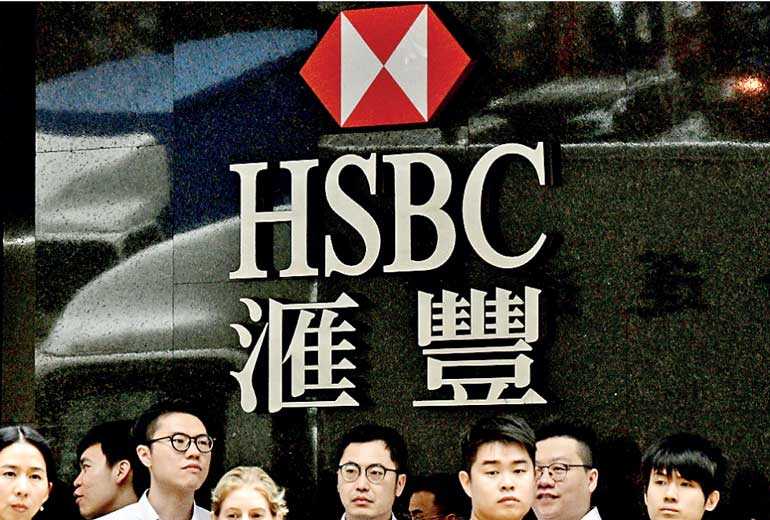Monday Feb 23, 2026
Monday Feb 23, 2026
Monday, 6 May 2019 00:00 - - {{hitsCtrl.values.hits}}

HONG KONG, (REUTERS): HSBC Holdings PLC smashed forecasts with a 31% rise in first quarter profit, bolstered by a surge in income from its core Asian business and lower costs that outweighed a poor performance from investment banking.
The promising set of results showed Europe’s biggest bank by assets balancing its growth ambitions with the need to rein in costs, the key challenge facing Chief Executive John Flint after years of restructuring.
HSBC said operating expenses dropped 12% in the January-March quarter, helped by one-off sales in its retail and commercial businesses and the non-recurrence of US regulatory fines for past misdeeds.
Profit before tax rose to $ 6.21 billion from $ 4.76 billion in the same quarter last year, above the $ 5.58 billion average of analysts’ estimates compiled by the bank.
HSBC warned further cost cuts may be needed in the year ahead, in order to avoid a repeat of last year’s failure to meet the target of positive ‘jaws’, which measures if income is growing faster than expenses.
“We are not declaring victory on jaws for the full year,” Chief Financial Officer Ewen Stevenson told reporters.
HSBC said it would update investors on the potential for returning more capital to shareholders when it reports half-year results in June, with further share buybacks expected.
“These are, in our view, undoubtedly positive numbers and if HSBC can continue delivering its current returns and growing capital we see little reason returns to shareholders won’t follow suit,” Nicholas Hyett, an analyst at online investment platform Hargreaves Lansdown, said.
HSBC’s shares were up 2.7% in London at 1015 GMT, within a STOXX European banks index up 0.4%.
HSBC’s trading business had a poor first quarter, in common with many of its US and European rivals that saw revenues fall in subdued markets.
HSBC’s stock traders did particularly badly, with revenues tumbling 34% excluding a favourable one-off provision, the worst performance of an equities business in the quarter among major US and European banks.
While HSBC has been boosting spending to raise its market share in businesses such as retail banking and wealth management, investment banking has struggled in the last year with staff departures and slower revenue growth.
The banking division, which advises clients on finance and mergers, has lost senior dealmakers and slipped down the 2018 rankings in merger advisory and equity capital markets amid internal questions over its strategic direction.
HSBC saw some improvement in its merger and equity advisory rankings in the first quarter, according to Refinitiv data.
The lender reshuffled the unit on Tuesday as former JPMorgan banker Greg Guyett put his stamp on the business.
“We are always looking at parts of the business and trying to improve them, but there should be no dramatic changes,” HSBC’s Stevenson told Reuters, when asked if further changes were needed to the investment bank.
The results for the London-headquartered bank, which makes the bulk of its profits in Asia, showed both the benefits and costs of its global reach and business mix, at a time when other European lenders are shrinking.
HSBC warned in February it might have to delay some investments this year as it missed 2018 profit forecasts due to slowing growth in its two home markets of China and Britain.
While the bank’s pretax profit in Asia rose 5% during the first quarter to $ 5 billion, accounting for 81% of overall profits, other regions fared worse.
The bank said the turnaround strategy for its US business, which has for years underperformed, was progressing, but the task remained its “most challenging strategic priority”.
In the first quarter, North America posted a pretax profit of $ 379 million compared with a loss of $ 596 million in the same period last year, as the bank increased retail customer numbers and capitalised on its international network, it said.
HSBC also said expected credit losses in its commercial bank rose by $ 300 million thanks mainly to small corporate exposures in Britain amid ongoing uncertainty over the country’s departure from the European Union.